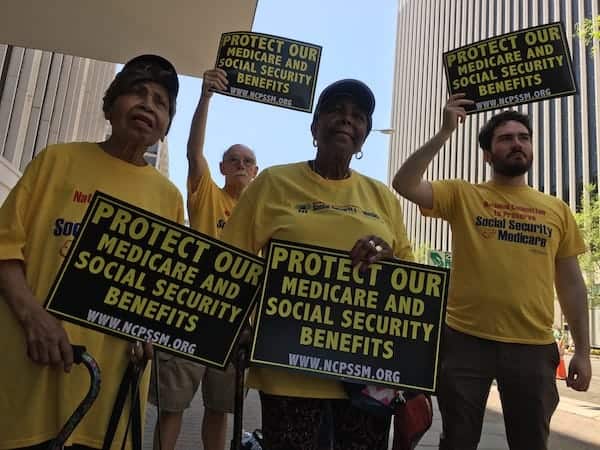
Congresswoman Gwen Moore (D-WI) and Senator Tammy Baldwin (D-WI) are taking concrete action to reduce the number of Social Security field office closures around the country. They have introduced legislation to make it harder for the Social Security Administration (SSA) to summarily shutter these crucial customer service centers without Congressional oversight and input from local communities.
SSA has closed more than 60 field offices since 2011, inflicting hardship on lower income claimants who can’t easily access the nearest alternate locations. These closings have taken place largely – but not exclusively – in urban areas with minority populations. When an office in Congresswoman Moore’s Milwaukee district serving poor and mostly Hispanic residents was summarily shut down in 2017, she and Senator Baldwin said enough is enough.
“Social Security Administration (SSA) office closures do nothing but create hardship for seniors and other beneficiaries who may struggle to travel long distances or have medical, work, and childcare obligations that make long wait times and overcrowding prohibitive.” – Rep. Gwen Moore (D-WI)
The “Maintain Access to Vital Social Security Services Act,” which Moore originally introduced in the previous Congress and is now paired with Baldwin’s Senate bill, calls for stricter oversight of SSA in the realm of field office closures. The bill includes:
- A moratorium on field office closures.
- A binding 180-day public notification and comment period before any field office is closed.
- Congressional oversight of the General Services Administration, (the ‘realtor’ for SSA), which often claims there are no available, nearby sites for relocating field offices.
“There’s currently very little oversight when SSA closes a field office,” said Dan Adcock, the National Committee’s Director of Government Relations and Policy on Facebook Live. “This bill would adopt a procedure that’s similar to how the Postal Service closes post offices.”
Adcock points out that before a U.S. post office is closed, there is a process including a government review and public comment period. Local residents can give input on the potential impacts of the closures – something that is not currently required for the closure of a Social Security field office.
In the past two years alone, SSA has shut down field offices in several major metropolitan areas – including Chicago, Milwaukee, Baltimore, and Arlington, VA just outside Washington, D.C. These closures have forced low income claimants to take the bus or subway for up to 2 hours round-trip to an alternate location.
“Closing Social Security field offices like these causes undue difficulty for the elderly, disabled and working people who rely on public transportation.” – National Committee president Max Richtman.
In 2018, volunteers from the National Committee’s Capital Action Team participated in protests against field office closures in Arlington and Baltimore. Protesters carried signs reading, “Keep SSA Open!” and chanting “Social Security, find a way! This office has got to stay!”

SSA has sought to reduce costs after seeing Congress cut its operating budget by 11% between 2010 and 2017. Funding levels have since been restored to more adequate levels, but the agency’s operating budget still has not kept pace with inflation – and customer service continues to suffer.
Retiree Julian Blair insisted that Congress shouldn’t have cut funds for SSA operations when Social Security’s administrative costs are already paid for by workers’ payroll contributions. “We paid into the system – for benefits and for decent service,” he told a crowd of protestors. “How can they treat people this way?”
Social Security claimants endure long wait times on SSA’s customer service phone line, crowded field offices, and excessive wait times for disability hearings. These hardships, along with field office closings, can undermine public support for Social Security. The legislation introduced by Rep. Moore and Senator Baldwin is a crucial step toward improving customer service and protecting Social Security itself.


